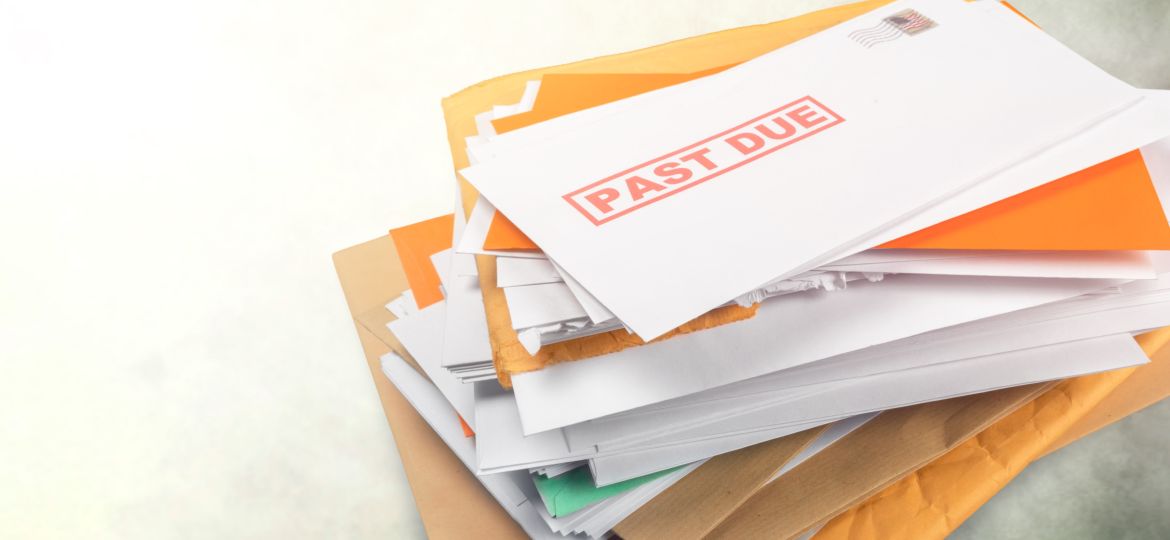
If a debt collector calls you, you may feel a combination of anxiety and frustration. Before you take any action or respond to their claims, it is important that you know your legal rights and what your best options are for debt resolution. You should also be aware of the laws that govern debt collection practices and what is legal.
At Daic Law, we receive questions about debt collection practices on a daily basis. In this post, we offer some answers to those frequently asked questions in the hopes that you can find some peace of mind that you can overcome debt collectors.
FAQs about Debt Collection Practices
If you have concerns about debt collection practices, review our FAQ and answers, and contact us if you have more questions or need legal advice.
Q: What is the Fair Debt Collection Practices Act (FDCPA)?
The Fair Debt Collection Practices Act, or FDCPA, is a set of law that governs the actions of debt collectors. For example, under the FDCPA, it is illegal for debt collectors to use unfair, deceptive, or abusive practices.
Q: What types of debt are covered under the FDCPA?
The FDCPA covers individual/family debts including medical bills, mortgage, auto loans, credit cards, student loans, and other household debts. Business-related debts are not covered.
Q: Can debt collectors contact me anytime, anywhere, anyhow?
Debt collectors are allowed to call, text, or email you about collecting a debt. Under the FDCPA, they must contact you only between the hours of 8 a.m. and 9 p.m. unless you agree to be contacted outside these hours. They cannot contact you at work if you have told them not to. They also cannot discuss your debt with anyone other than you and/or your authorized representative, such as a spouse.
Q: What can debt collectors NOT do?
Debt collectors cannot harass you, lie to you, or treat you unfairly. For example:
- Harassment: Debt collectors cannot threaten you, use profane language, or repeatedly call you.
- Lying: Debt collectors cannot lie about how much you owe, pretend to be a government representative or someone else, or tell you that you will be arrested if you don’t pay them.
- Unfairness: Debt collectors cannot attempt to collect interest or fees (unless in a contract), deposit post-dated checks early, publicly reveal your debt, post debt information where others can see it.
Q: How do I stop debt collectors from contacting me?
You can send a letter to a debt collector asking them to stop contacting you. It is best to send this letter via certified mail with a delivery receipt. The debt collector can then contact you to tell you they are stopping, or to inform you of specific actions they are taking, such as filing a debt collection lawsuit. If you are working with a debt defense lawyer, let the debt collector know and arrange for any future communication to go through them.
Q: What if I don’t owe the debt they are trying to collect?
If you don’t recognize debt that a debt collector is trying to collect on, you should contact them and request verification of the debt. If you get verification and still do not recognize the debt, you should send a letter to the debt collector disputing that you are responsible for the debt.
Q: Can a debt collector garnish my wages?
In Texas, a debt collector can garnish funds in your bank account, but they cannot garnish your paycheck.
Q: Can a debt collector garnish federal benefits?
Federal benefits are generally exempt from garnishment. Your bank account may still be garnished, but generally, the following federal benefits are not subject to garnishment actions:
- Supplemental Security Income Benefits
- Social Security Benefits
- Veterans Benefits
- Federal Student Aid
- Military Annuities
- Railroad Retirement
- Federal Emergency Disaster Assistance
Q: What should I do if a debt collector sues me?
If a debt collector has filed a lawsuit against you, you should contact a debt collection lawsuit lawyer right away. You have a limited amount of time to respond to the lawsuit before the court issues a default judgment in favor of the debt collector. A default judgment means that you have not disputed the debt, and therefore are responsible for it and other fees. It is important to act quickly!
Learn More about Debt Collection Practices and Your Legal Rights
If a debt collector is contacting you or has sued you, it is important to act quickly. Learn more about your legal rights and how you can protect them by contacting Daic Law. Our debt defense and debt collection lawyer can help you understand how the FDCPA and other laws impact your rights and responsibilities.
For a free consultation of your case, call us at 877-893-6040, or email us at info@daiclaw.com. Daic Law helps clients in Dallas, San Antonio, Houston, and surrounding areas.

